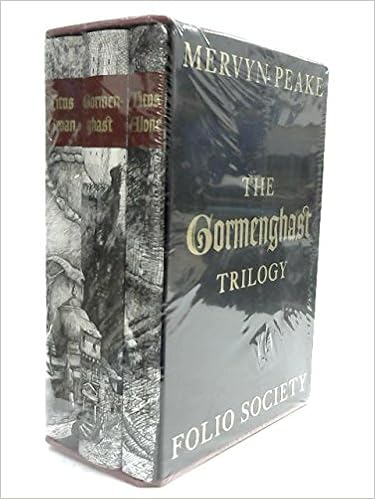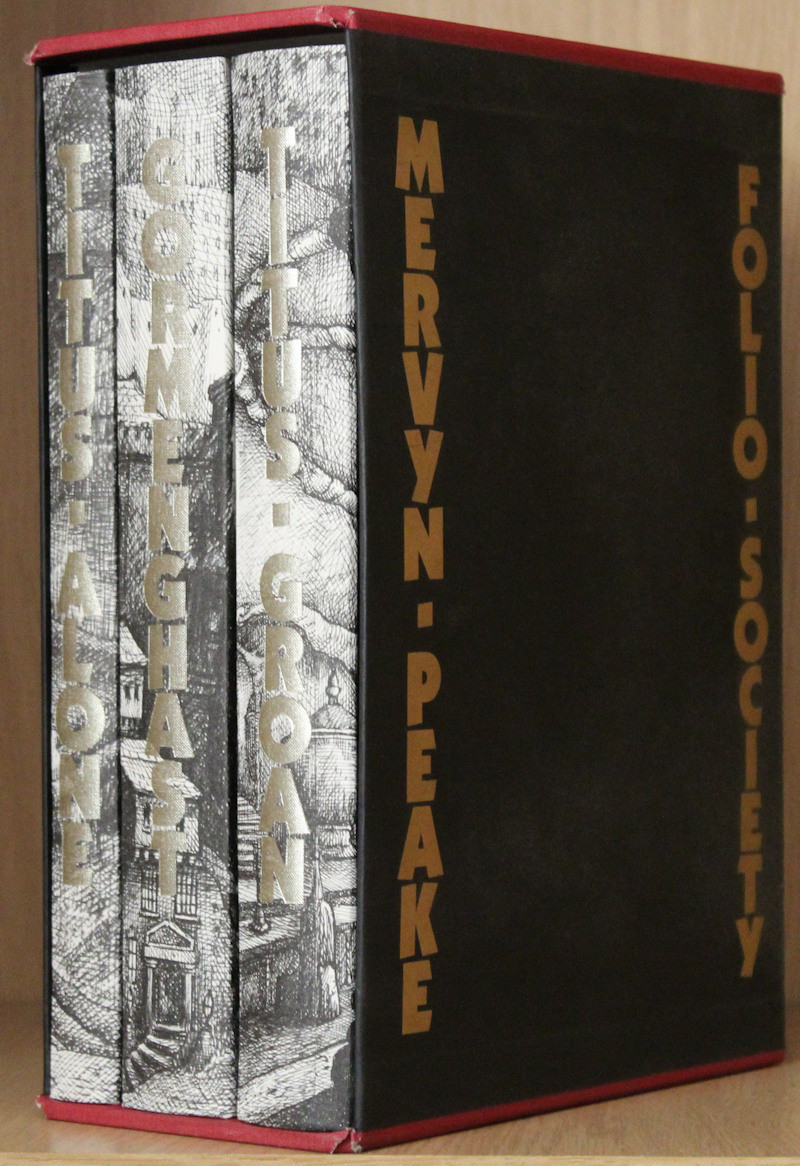

We have spent our lives expecting books to work and feel a particular way, so when you come across a different solution, it really does feel 'other'. Sorry to keep dragging my wretched cookery book into the thread, but he's exactly right, and once you handle an open spine bound book, you will see what he means. >204 astropi: >205 punkzip: At 3.10 in the film about illustrating Gormenghast, Dave McKean says about them 'They feel 'other' don't they? They're definitely books but they have a strange quality all their own'.


In such a case I don't blame Folio for trying to give some background as to the nature of open-spine bindings.
#GORMENGHAST FOLIO SOCIETY FULL#
I've noticed a lot comments in fantasy circles critical of the recent standard letterpress edition of The Blade Itself as overpriced because it wasn't a full leather binding like what most fantasy "collector" editions are that feature poor faux leather (as opposed to goatskin such as on the far more expensive numbered edition), and completely glossing over the letterpress component of the production, since that is what that segment of the market expects. >156 ubiquitousuk: I definitely see some element of that in there but also certainly see Folio trying to provide some explanation of what people should/can expect from this form of binding which isn't particularly widely used especially for the more casual book collector who is more interested in this more for the title than from a fine press/binding collecting perspective like say with something more esoteric like Studies from Nature which is also open-spine. I would like to see a return to LEs with more artisan oriented concerns (such as the Letterpress Shakespeare) as opposed to the recent minor bling approach (Hill House), but even there they are occasionally doing some unique productions, such as the Aurora Australis facsimile (I have no interest in this personally, but it does seem to have unique bibliophilic significance beyond the marketing of signed/numbered/limited). I certainly wouldn't presume to make those calculations on behalf of a company that is bearing the costs and risks. This seems like a relatively customer-friendly middle ground.Īdditionally, it's easy to armchair quarterback many of these business decisions, but demand can be finicky (see Rob Roy LE) and the setup costs for a fancy edition with premium flourishes is probably nontrivial, especially when considering things like signatures (New Sun), bindings and enclosures (Dante), etc. To be fair, Folio does often print LEs in the form of slightly less luxurious standard editions, such as with The Book of the New Sun, Dune, Hill House, and so forth.


 0 kommentar(er)
0 kommentar(er)
